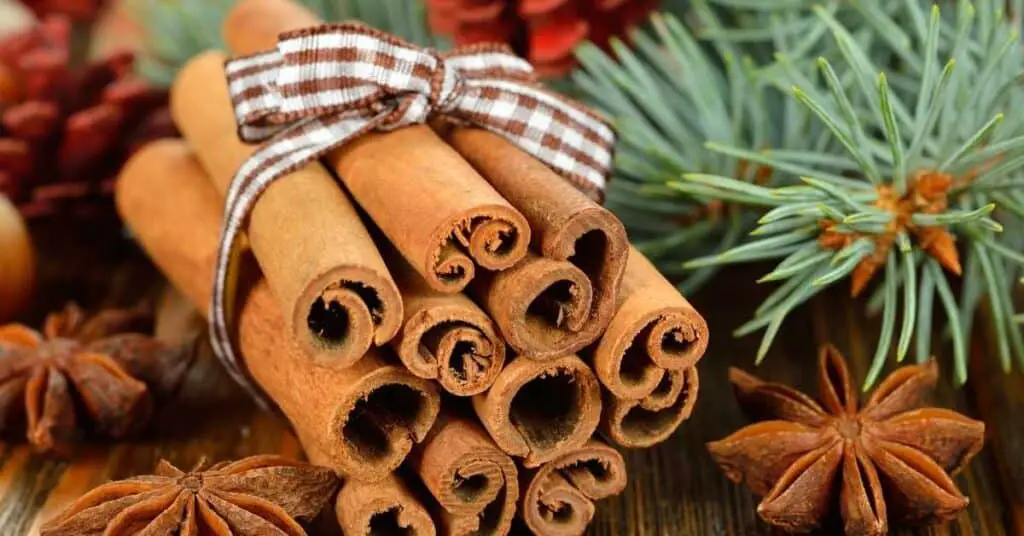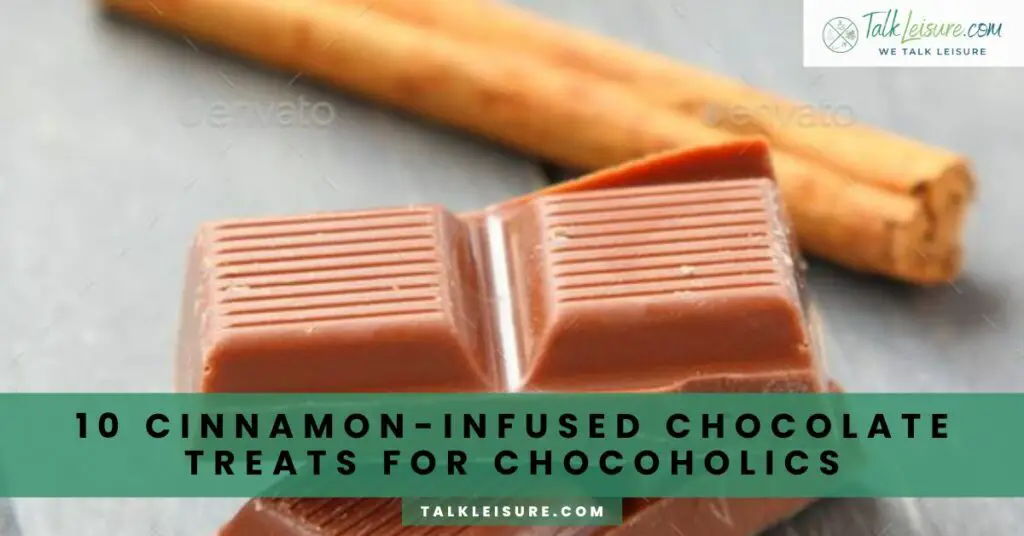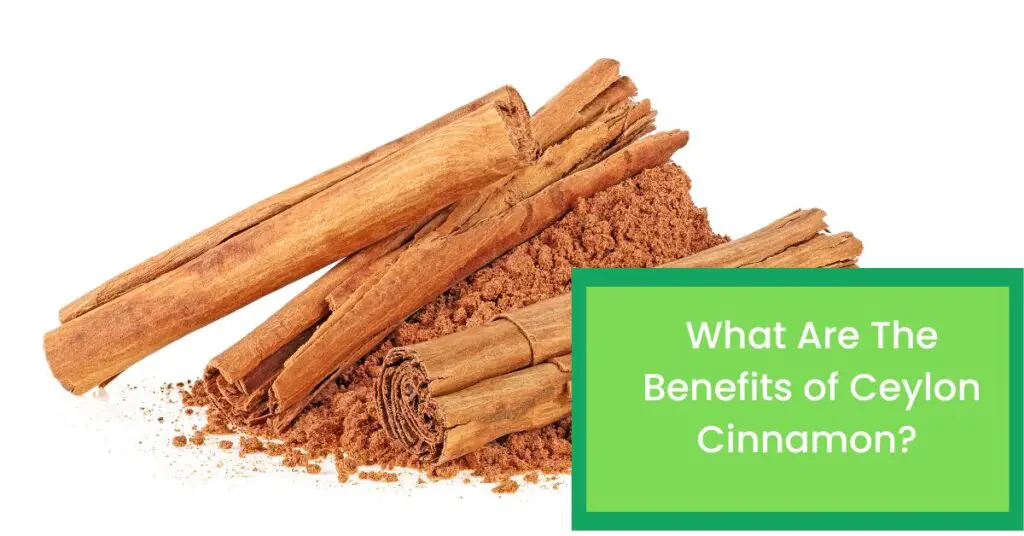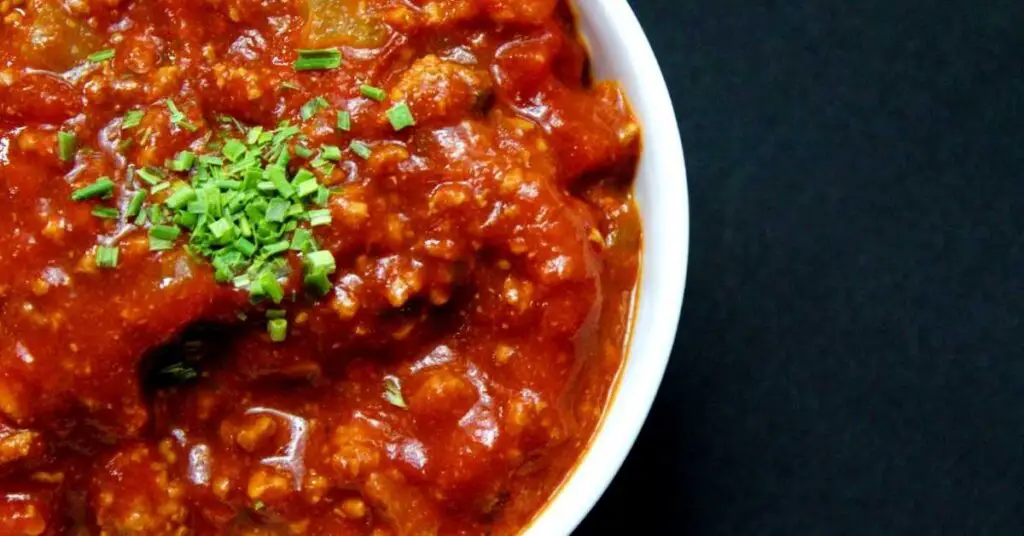Whether you love it or hate it, there’s no denying that cinnamon has a powerful flavor. But what gives this spice its characteristic taste? And what can kill the taste of cinnamon?
Cinnamon is made from the inner bark of certain trees in the genus Cinnamomum. The bark is dried and then ground into a powder. The characteristic flavor of cinnamon comes from several different compounds, including cinnamaldehyde, eugenol, and camphor. These compounds interact with our taste buds in different ways, causing the characteristic sweetness, warmth, and spiciness of cinnamon.
There are a few different things that can kill the taste of cinnamon. For example, if the cinnamon is old, it may have lost its flavor. If the cinnamon is cooked for too long, the heat can also damage the flavor.Additionally, if other strong flavors are present, they may overwhelm the taste of cinnamon.
For example, if a dish contains both cinnamon and cloves, the cloves will likely be more prominent. Finally, adding too much or too little of cinnamon can also impact the flavor. If a recipe calls for 1 teaspoon of cinnamon and you use 1 tablespoon, the result will be a very strong (and possibly unpleasant) flavor. On the other hand, if you use 1/4 teaspoon when the recipe calls for 1 teaspoon, the flavor of cinnamon will be barely detectable. The best way to ensure that your dish has the perfect balance of cinnamon flavor is to follow recipes closely and to taste as you go. With a little practice, you’ll be a pro at using Cinnamon to add just the right amount of sweetness and spice to your dishes!
The Taste of Cinnamon
Cinnamon is a spice that has been used for centuries in both sweet and savoury dishes.
It has a warm, sweet flavour that can be used to enhance the flavour of many different recipes.
Cinnamon can be used to add sweetness to desserts, or it can be used to add depth of flavour to savoury dishes. No matter how you use it, cinnamon is a versatile spice that can add a unique flavour to your favourite recipes.
If you’ve never cooked with cinnamon before, start with a small amount and taste as you go.
You can always add more, but you can’t take it away once it’s been added. A little cinnamon goes a long way, so start slowly and adjust to your taste.
Cinnamon is a great way to add flavour to both sweet and savoury dishes. Try adding it to your next recipe and see how you like the taste of cinnamon.
Why does cinnamon lose its flavor ?
Cinnamon loses its flavor for a few reasons. The first is that it is a dried
spice, so over time the essential oils that give it flavor evaporate. Additionally, cinnamon is exposed to light and air, which can also cause it to lose its flavor. Finally, age can also play a factor in how flavorful your cinnamon is.
If you want to keep your cinnamon tasting fresh, be sure to store it in an airtight container away from light and heat. When using cinnamon, start with a small amount and add more to taste. This will help ensure that your dish has the perfect balance of flavor.
Which Type of Cinnamon Has the Strongest Flavour?
When it comes to flavouring food, cinnamon is one of the most versatile spices available.
It can be used in sweet and savoury dishes alike, and its warm, woody flavour is instantly recognizable.
But what many people don’t realize is that there are actually two different types of cinnamon which are Ceylon cinnamon and Cassia Cinnamon. Let’s find out the taste of each type.
Cassia Cinnamon:
This type of cinnamon has a strong, pungent flavour and is the most common type of cinnamon used in baking. It is also the type of cinnamon you are likely to find in your local supermarket.
Ceylon Cinnamon:
Ceylon cinnamon has a more delicate flavour than cassia and is often used in savoury dishes. It can be harder to find than Cassia cinnamon but is available in some specialty stores.
Both Ceylon and cassia cinnamon contains cinnamaldehyde, which is responsible for their characteristic flavour. However, Ceylon cinnamon also contains eugenol, another compound that contributes to its unique flavour.
Visual Explanations:
What Really Kills The Taste of Cinnamon?
Cinnamon is made up of many different compounds, but the two that are responsible for its taste and aroma are cinnamaldehyde and eugenol.
Cinnamaldehyde is the compound that gives cinnamon its characteristic flavour, while eugenol is responsible for its distinct aroma.
Together, these two compounds create the unique taste and smell of cinnamon.
Unfortunately, these essential oils are also very volatile and can easily be lost during cooking or baking.
Here are some of the best examples that kill the unique taste of cinnamon.
1. By Adding Too Much Cinnamon:
You might think that the more cinnamon you add, the tastier your dish will be. However, this is not the case.
When you add too much cinnamon, it will actually kill the taste of your food. Too much cinnamon can make your food taste bitter and unpalatable.
2. By Letting it Cook for Too Long:
If you let cinnamon cook for too long, it will lose its flavour. This is because cinnamon contains essential oils which evaporate when exposed to heat.
So, if you want to keep the taste of cinnamon in your dish, make sure to add it towards the end of cooking.
3. By Adding Other Strong Spices:
If you add other strong spices to your dish, they can easily overpower the delicate flavour of cinnamon. Stick to using just a small amount of cinnamon so that its flavour can shine through.
4. By Adding Natural Sweeteners:
While cinnamon is often used to add sweetness to dishes, adding too much sweetener can actually kill the taste of cinnamon. This is because our taste buds can only handle so much sweetness.
So, if you want to keep the cinnamon flavour in your dish, go easy on the sugar or honey.
5. By Storing it for Too Long Period:
When cinnamon is exposed to air, it will start to lose its flavour. So, if you want to keep the taste of cinnamon fresh, make sure to store it in an airtight container.
This will help to preserve the essential oils and keep the spice tasting fresh for longer.
6. By Storing it For Improper Method:
Cinnamon should be stored in a cool, dark place. Storing it in a warm place will cause the essential oils to evaporate and will make the spice lose its flavour.
So, make sure to keep your cinnamon stored in a cool, dark cupboard to keep its taste fresh.
By following these tips, you can make sure that your cinnamon will retain its flavour and taste great in your dishes!
How to keep your cinnamon fresh
Ground cinnamon only stays fresh for about 3-4 months, while cinnamon sticks can last up to a year. If you’re not sure how old your cinnamon is, give it a smell test – if it doesn’t smell fragrant, it’s time to replace it. You can also give it a taste test – if the flavor is muted, it’s time to get rid of it. When stored properly, cinnamon should retain its flavor and aroma for 6-9 months.
To extend the shelf life of your cinnamon, be sure to store it in an airtight container in a cool, dark place. You can also keep cinnamon sticks in a glass jar with sugar – the sugar will help absorb any moisture and keep the cinnamon from drying out. If you notice any mold on your cinnamon, throw it away immediately – mold can cause spices to lose their flavor and can be harmful to your health. With proper storage, ground cinnamon will last 3-4 months and cinnamon sticks will last up to a year.
What Does Fresh Cinnamon Smell Like?
The answer may surprise you. Cinnamon is a spice that comes from the inner bark of trees in the genus Cinnamomum.
It has a long history of use in traditional medicine and as a culinary spice.
Cinnamon has a strong, pungent aroma that can be described as sweet, warm, and spicy. The essential oil of cinnamon is used in aromatherapy and has a range of potential health benefits.
While the aroma of cinnamon is pleasant to many people, it can be overpowering to others.
If you find the smell of cinnamon to be too strong, you can try diluting it with a carrier oil such as jojoba or almond oil.
Whether you love the smell of cinnamon or not, there’s no denying that it has a unique and powerful aroma. If you’re curious about how this popular spice smells, give it a try for yourself!
How do you reduce the taste of cinnamon in food?
When a recipe calls for cinnamon, it is important to use the right amount. Too much cinnamon can ruin the dish, making it too sweet or overpowering the other flavors. However, it can be difficult to judge the right amount of cinnamon to use, especially if you are new to cooking. If you find that your food is too sweet or too spicy after adding cinnamon, there are a few things you can do to fix it. First, try adding more of the other spices in the recipe. This will help to balance out the flavors and make the dish more savory. Alternatively, you could try adding a bit more acidity to the dish, such as lemon juice or vinegar. This will help to offset the sweetness of the cinnamon and make the dish more balanced. Finally, if all else fails, you could always add more of the other ingredients in the dish to dilute the flavor of the cinnamon. With a little trial and error, you should be able to find the perfect balance of flavors for your dish.
Conclusion
There are a few potential explanations for why cinnamon might kill the taste of certain foods. First, cinnamon is a very strong flavor that can easily overwhelm other subtle flavors. Second, cinnamon is a drying spice, so it can suck the moisture out of food and make it less flavorful. Finally, some people are simply sensitive to the taste of cinnamon and find that it overwheltical rubs them the wrong way. Whatever the reason, if you find that cinnamon kills the taste of your food, you might want to try leaving it out or using a different spice instead.
Frequently Asked Questions Related to The Taste of Cinnamon
1. How long does the cinnamon smell last?
Cinnamon sticks will last almost indefinitely if stored correctly. To extend their shelf life, store them in a cool, dry place away from sunlight.
You can keep them whole or ground, but ground cinnamon will lose its potency more quickly.
When properly stored, cinnamon sticks will retain their flavour for 4 to 5 years, while ground cinnamon will only last 18 months to 2 years.
Check your spices regularly and smell them before using them to ensure they’re still fresh.
2. Is powdered cinnamon real cinnamon?
There is some debate over what “real” cinnamon is, but most people believe that powdered cinnamon is a more processed form of spice.
Cinnamon comes from the inner bark of trees in the genus Cinnamomum. These bark sheets are then rolled, ground into powder, and used as a spice.
While you can find pre-ground cinnamon at most grocery stores, you can also purchase cinnamon sticks and grind them yourself at home.
Some people believe that this is superior to purchasing ground cinnamon because it retains more of the essential oils and flavour compounds.
3. Is most cinnamon fake?
Most of the cinnamon sold in stores is actually cassia cinnamon, not Ceylon cinnamon.
Cassia is cheaper to produce and has a strong flavour, so it’s often used as a stand-in for Ceylon cinnamon. While both types of cinnamon come from the bark of different trees, they taste similar.
However, Ceylon cinnamon is considered to be more delicate, with a sweeter flavour. So, if you’re looking for the true Cinnamon experience, be sure to seek out Ceylon cinnamon.





